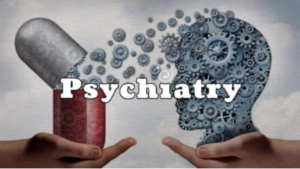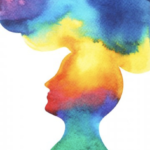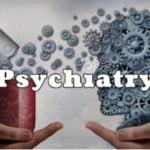What if Psychiatry has been wrong all these years?
I have followed the progress (or more accurately, the regression) of psychiatry over my 35 years in practice. Initially, a lot of weight was given to developmental, social, and family histories. The nature and quality of relationships and friendships were important to the overall assessment of the patient.
 Fast forward to today. As I have written about, much of psychiatry is practiced in a “medical model“ approach. Led by DSM and its successors, a patient is reduced to a unified diagnosis, carrying a group of symptoms. All the better to classify them and shuffle them off to a medication.
Fast forward to today. As I have written about, much of psychiatry is practiced in a “medical model“ approach. Led by DSM and its successors, a patient is reduced to a unified diagnosis, carrying a group of symptoms. All the better to classify them and shuffle them off to a medication.
No longer does Psychiatry see humans as individuals sitting across from them with their own rich stories. In this “medical model” it is only a matter of deciding what symptoms are being presented and for how long, and then what medication might work. Hard stop.
As I think about this closely, psychiatrists are putting patients into isolated predetermined boxes. Little credence is given to relational interconnectedness.
Yet, this is at odds with the findings of neuroscience, as we look at the brains of infants, toddlers, and children developing into adolescence. The brain is organized according to relationships. Without these connections in relationships, not only does brain development stop, but the baby can die. Very quickly. It is only by the enrichment and encouragement of these relationships that a brain even begins to develop optimally.
We also know that many children with their developing brains are being increasingly exposed to depressed parents, digital screens replacing connection, emotional isolation and emotional hunger. Might that child not respond to the over stimulation of the world, but lack connection to it, by needing to suppress their stress response? What if this went on for many years? Constant suppression of oneself leads to repression and is followed closely by depression. Perhaps that child then becomes “the sad one in the family“.
An adaptation to early childhood events, depression has become a new way of connecting. A method that is far removed from their original neurobiology and far removed from their emotional needs.
What if psychiatry is all wrong? What if all psychiatric diseases [save bipolar disorder, schizophrenia, autism, and the like] are simply coming from one place and the manifestations of neural development gone wrong due to the need to rewire a traumatized brain. Researchers have begun to speculate, for example, that depression, anxiety, ADHD, OCD, etc. may be coming from a common source. In fact, they may be all manifestations of underlying problems that have occurred along the course of development. Instead of discrete entities, some of these may, in fact, be adaptations or temporary solutions to deeper issues. This puts the entire science in a very different light. But it also speaks to the need to look at patients in highly individualistic ways. Each patient is a discrete human being with separate and unique developmental stories. Everyone comes into the world with their own genetics, intrauterine experiences, and parent-child interactions. Each child develops in its own environment, unique only to them.
Expediency has replaced thoughtful consideration in diagnosis and treatment. We are treating delicate mental states with a shovel when a magnifying glass is needed. We’ve made a wrong turn, and our patients are paying a high price. I practice what I preach, and I know I’m vastly outnumbered by those practitioners who are following the industry instead of their own observations. When will we say ‘enough’?
Mental health problems can be seen as the end point manifestations of what has gone wrong in the preceding years. A psychiatrist or psychologist in this new paradigm, can then begin to put together the how and why with a patient. This helps create a coherent narrative about what’s happened to them in their life, how they have been impacted, how they have tried to adapt, in either a successful or maladaptive way. This thinking provides a much deeper hope for understanding.
My patients tell me after we have understood the narrative of their life stories together, that relief begins to occur immediately. That clarity rather than confusion ensues. That relationship dynamics come into full light. The choices which were made can now be understood and corrected for.



